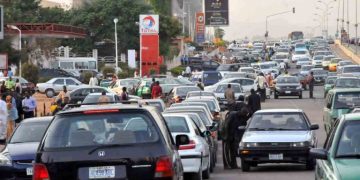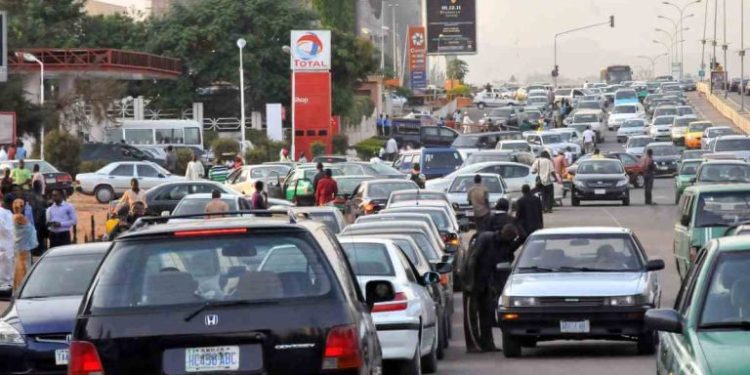Nigeria continues to face severe fuel shortages, with numerous filling stations closed across several states, including Abuja, Niger, and Nasarawa. According to Drivetvnews, the few stations that remain operational are experiencing long queues, resulting in significant frustration and traffic congestion in major urban areas.
In Abuja, numerous NNPC and Conoil stations have seen extended lines of motorists, some waiting for hours to purchase petrol. Meanwhile, stations such as Salbas, Gegu Oil, and Eterna have been closed due to a lack of fuel.
Niger State is facing a similar issue, with many filling stations, including NNPC retail outlets, shuttered, leading to long queues at the few stations still open.
In Lagos and Ogun states, only stations owned by major marketers are dispensing fuel, resulting in long lines at many locations. Independent marketers have been unable to obtain fuel supplies, causing their stations to close and transport fares to increase.
At the NNPC Retail outlet in Iyana-Woro, vehicles have formed long queues as drivers wait to buy petrol. While NNPC Retail stations typically sell petrol at prices below N600 per litre in Lagos, the price is currently N617 per litre in Abuja and surrounding areas.
Other stations, such as Heyden in Iyana-Woro, MRS in Alapere, Conoil, TotalEnergies, and Mobil in Alahusa Secretariat, have also experienced long queues, with petrol prices ranging from N617 to N650 per litre.
Drivers unable to wait in line have turned to independent marketers, where prices range between N700 and N900 per litre. The scarcity has led to a rise in black market activity, with petrol being sold at exorbitant rates of up to N1,500 per litre.
Depot operators have reported that they are rationing petrol due to a low supply, and it could take up to a week to return to normal conditions. A depot operator informed The Punch that the situation has not improved as of Monday and that depots are loading fuel at a slow pace due to the scarcity.
Another source suggested that the planned hunger protest could exacerbate the situation. “This scarcity will persist until the weekend because supply disruptions usually take a minimum of one week to resolve. If truck movement is affected by the protest, conditions could worsen,” the source said.
The NNPC has attributed the fuel shortage to issues with the discharge operations of a few vessels. Despite this explanation, the situation has continued to decline. The company has stated that it is working tirelessly with all stakeholders to resolve the problem and restore normal operations.
Many Nigerians remain skeptical of the NNPC’s assurances, given the ongoing scarcity. “We’ve heard these promises before with no change. The NNPC needs to take more concrete action to address the shortage,” said a motorist waiting in line.
The fuel crisis has also impacted businesses, forcing many to close due to a lack of fuel. “We can’t operate without fuel, and it’s severely affecting our business,” lamented a business owner.















